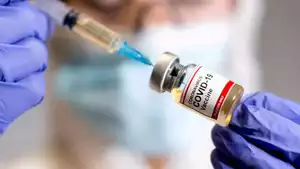Brain fog is not a new term in medicine. But it was the Covid-19 pandemic that introduced the phrase to the general public. Because many infected people in the world have ‘brain fog’ information coming to the fore. As soon as the epidemic comes under control, research has been started at home and abroad to understand the long-term effects of the infection on the body. Some researchers are particularly concerned about the impact of Covid on the brain, the driving force of the human body. A group of doctors from Bangur Institute of Neurosciences (BIN) and SSKM is going to start this research under the initiative of the ‘Indian Council of Medical Research (ICMR) in the country.
What is this brain fog?
Another name for brain fog is ‘chemo brain’. This word is used to mean that brain function is slow or sluggish. Such changes occur in the brain even after undergoing chemotherapy. Also, brain fog can be caused by certain illnesses or side effects of medications. Research from ‘Stanford University School of Medicine says that excess inflammation damages brain cells in both Covid and chemo.

Atanu Biswas, a faculty physician at BIN and head of the research team, says, “This brain fog is temporary in many cases and gets better on its own. Most of the Covid patients with brain fog recover. But many have some long-term effects. That’s even in younger patients. Why? Knowing that is the main purpose of research.” He said the research will also look at whether Covid causes premature aging like Parkinson’s disease or dementia.
Details of the study
The duration of the research is two and a half years. Amitabh Sengupta, Head of Pulmonary Medicine, SSKM is also on the research team. According to doctors, the brain controls ‘cognition’ i.e., memory, thinking, planning, and language. The study will look at the part of the brain that is active in thinking, reading, learning, remembering, and focusing. A German study found that many of those infected with ‘mild covid-19’ return to work and lose previous skills in memory, attention, planning, or decision-making.

That is why younger people are included in the study. Over 250 people from 18 to 75 years will be researched. Initially, two groups were considered, those infected with Covid and those without. But seeing the changing nature of Covid, there are two groups of patients who are hospitalized and those who are recovering at home. Through social media and recovering infected people from Shambhunath Pandit Hospital are being called for research. They can participate in the initial phase of the survey at the hospital or at home.
To understand mental health there will be a ‘Cognitive Function Assessment Test’. Memory, planning, judgment, and decision-making abilities will be tested by various questions. A special MRI will be done later. According to Atanu, MRI is usually done to see the overall condition of the brain. In this case, a special type of MRI will be done.
